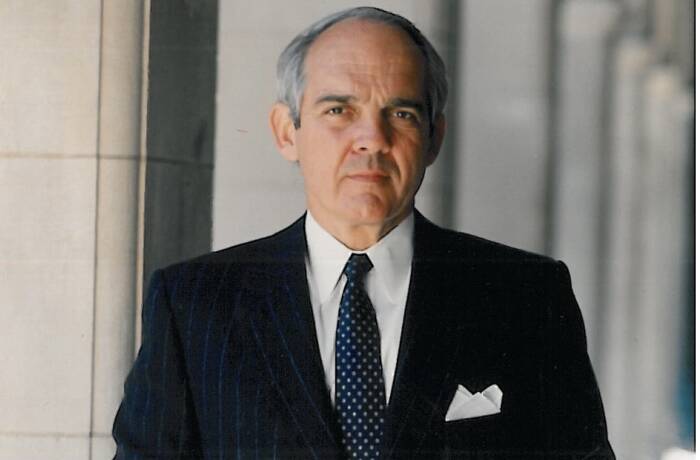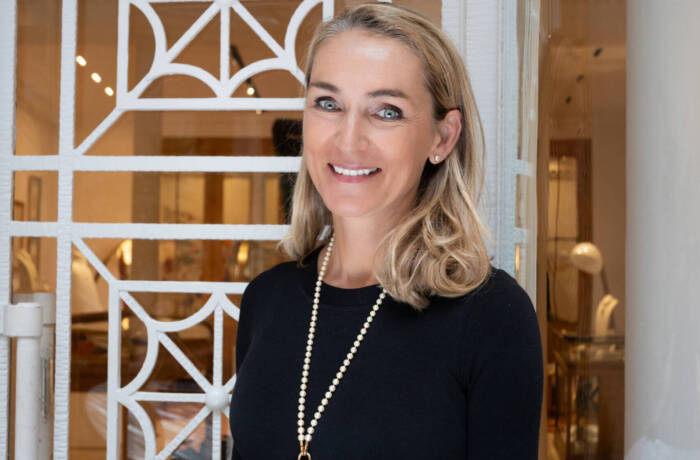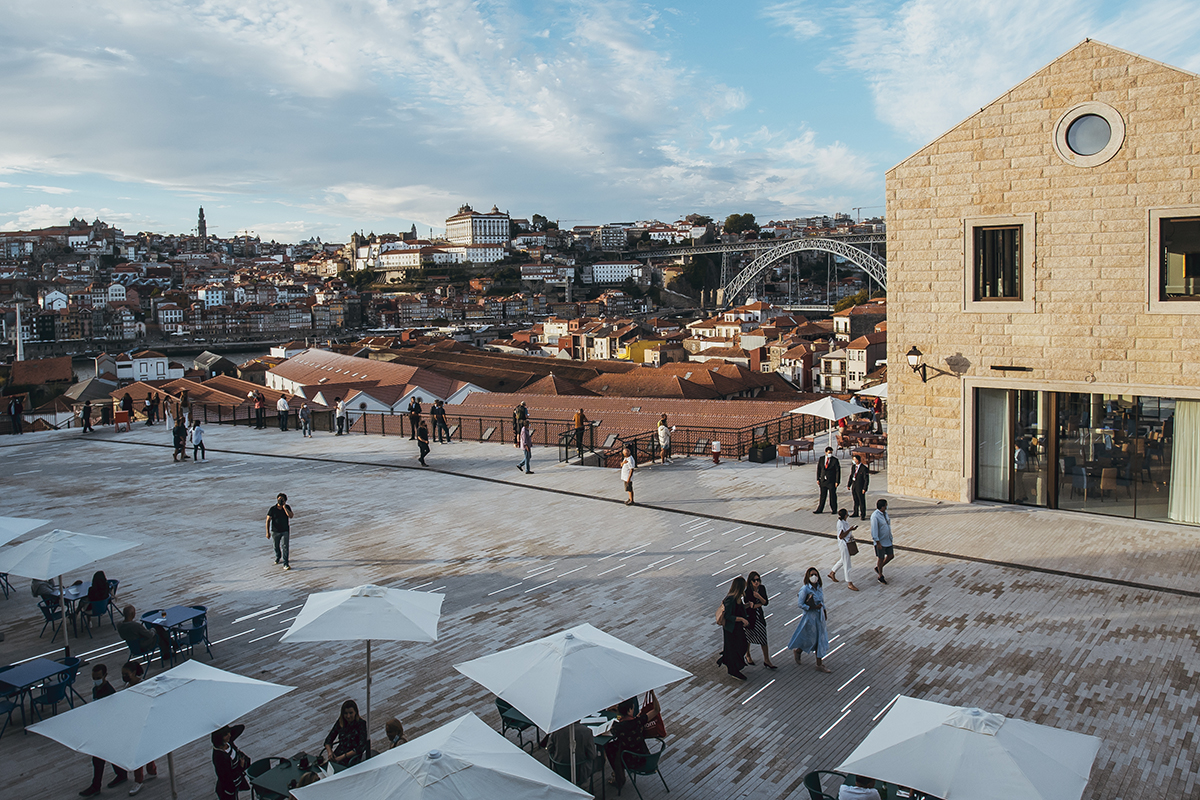
Adrian Bridge, opened Porto’s Cultural District, WOW, in 2020
Starting his career in the British Cavalry Regiment, Adrian Bridge moved to Portugal in 1994 and is now CEO of The Fladgate Partnership, which produces Taylor, Fonseca, Fonseca-Guimaraens, and Croft Ports. Here, Bridge speaks to LUX’s Leaders and Philanthropists Editor, Samantha Welsh about being a driving force behind wine tourism in Porto and developing the city’s new Cultural District WOW

Adrian Bridge
LUX: What do you think your training at Sandhurst taught you?
Adrian Bridge: The military teaches a great deal about leadership and confidence. You also learn to make decisions based on the available information, no matter how imperfect. However, in planning action it is in the details where success lies. That requires breaking down a problem to its parts and thinking through all of the details. I believe that all business is about the detail and that is where success lies.
LUX: How would you say this has influenced your dynamic style of leadership?
AB: The moto of Sandhurst is ‘Serve to Lead’ and I strongly believe in leading from the front. This creates a company culture where everything should be possible. I do not ask people to do things that I would not do myself. I think that this allows us to push forward, to take risks, to do things that others might not attempt.
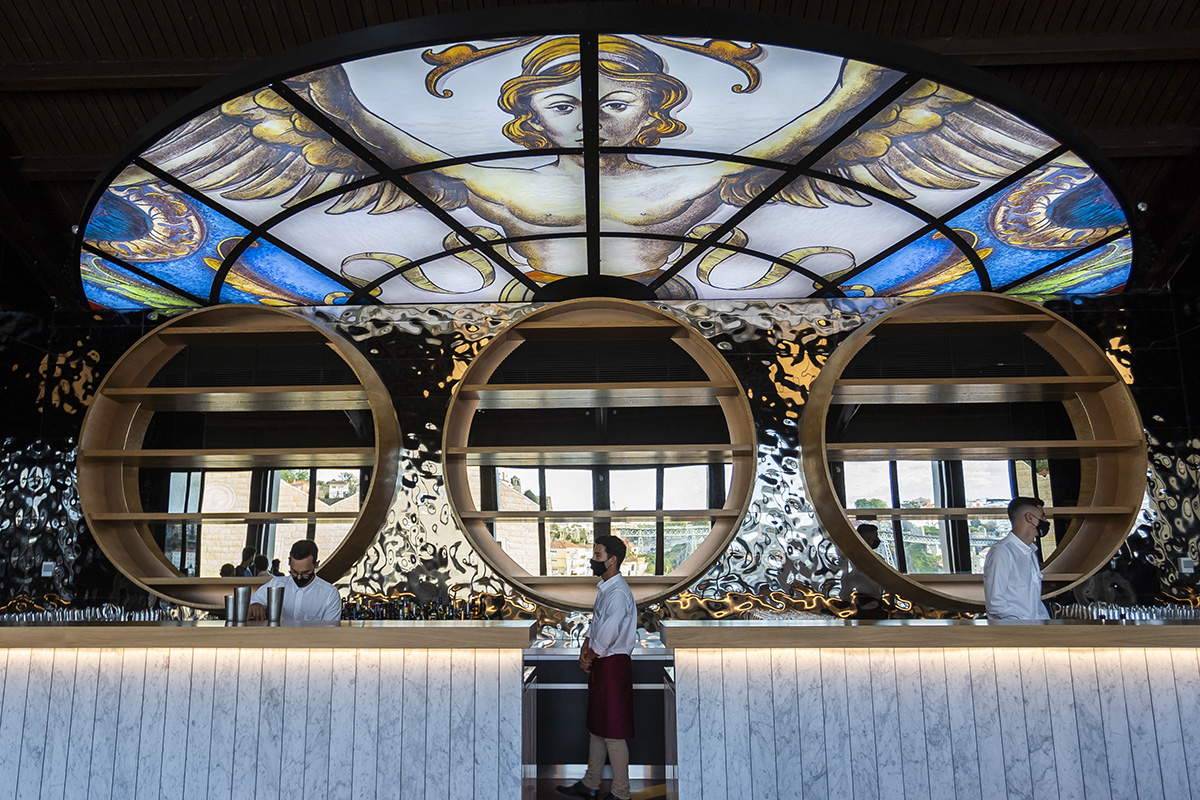
Angel’s Share is the name given for evaporation process that takes place when wine is ageing in barrels. It is also the name of the WOW wine bar
LUX: Why is the house so good at innovating?
AB: To me, innovation is all about pushing boundaries. To remain at the top, you simply can’t sit still. You have to continuously question, push and evolve or someone will overtake you.
Follow LUX on Instagram: luxthemagazine
Established in 1692, we are one of the oldest companies in the world simply because we don’t sit still. We are continuously expanding and innovating to appeal to both new and existing audiences. We have a reputation for quality and excellence that has been built up over time and continues to be sustained through the generations.
One of our best examples of innovation has to be the creation of Croft Pink; the first ever Rosé Port. We launched this product in 2008 with the goal to introduce Port wine to a younger generation. In 2011 we continued to expand this concept and launched a canned “ready to drink”- Rosé tonic.

The Fladgate Partnership produces Taylor, Fonseca, Fonseca-Guimaraens, and Croft Ports
LUX: Oporto is already a UNESCO World Heritage City, so what was your vision for WOW?
AB: Porto is a beautiful city full of history, charm and culture – all of great significance to Portugal’s identity. The vision of WOW was to bring a totally new set of cultural concepts to Porto and in this way offer quality content to the region.
We wanted this to be a game-changing space for both locals and travellers that really celebrates the culture, gastronomy, history and industries of Portugal. WOW is as educational as it is fun. To achieve this, we needed to make sure this was a dynamic district that featured regular exhibitions, unique events and seasonal experiences.
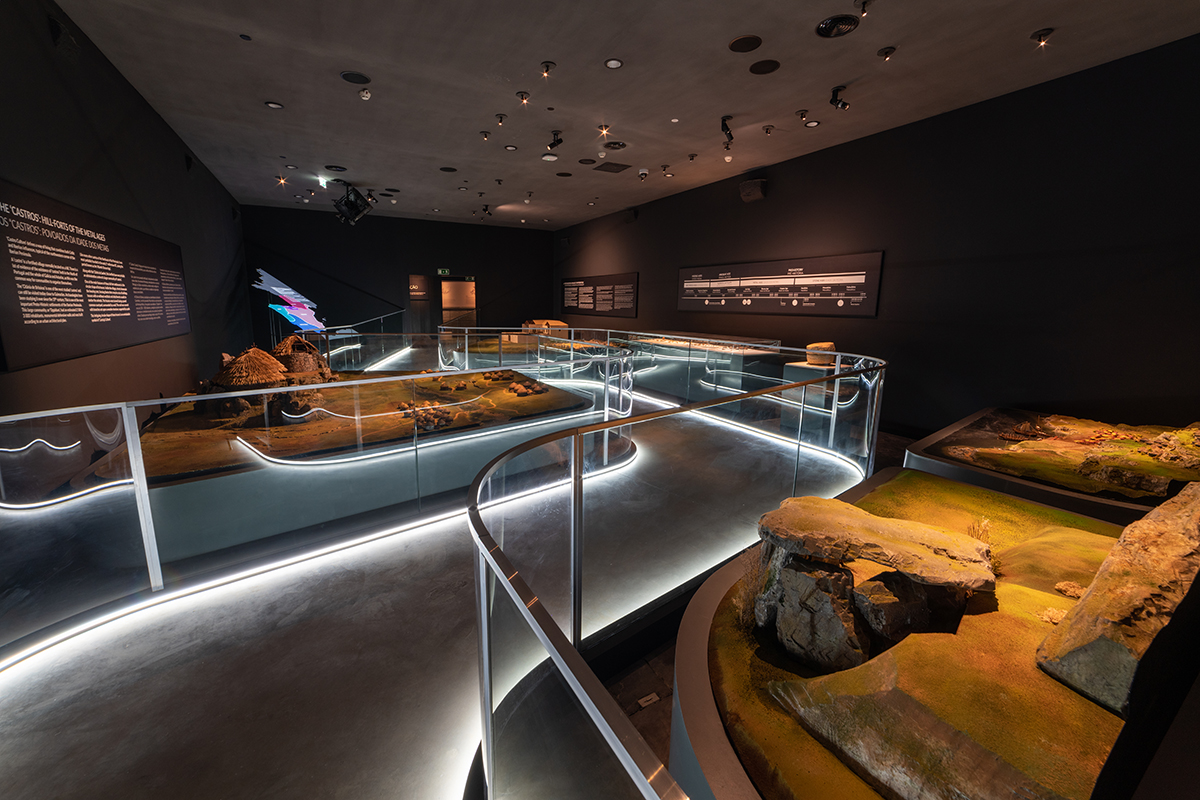
The District is over 55,000sqm and includes 8 museums and experiences and 11 restaurants and bars
LUX: What does an immersive experience offer that can complement the traditional vineyard visit?
AB: One of the reasons WOW originally came to be was in response to the booming number of visitors coming to Porto – demand that we helped to create by building The Yeatman – and the lack of experiences that Porto had to offer. To appeal to this market, we continuously try to ensure that there is something new for people to do and see in the district. Technology really allows us to engage with guests in a more interesting and meaningful way.
After the traditional vineyard visit, I would definitely suggest spending a day at WOW. It’s a good idea to choose one or two museums, do a workshop at The Wine School or at The Chocolate Story – the chocolate museum, enjoy a typical dish in one of our restaurants, appreciate the sunset in our Angel’s Share bar while drinking a Port Tonic and stay to be amused by the video mapping in our main square.
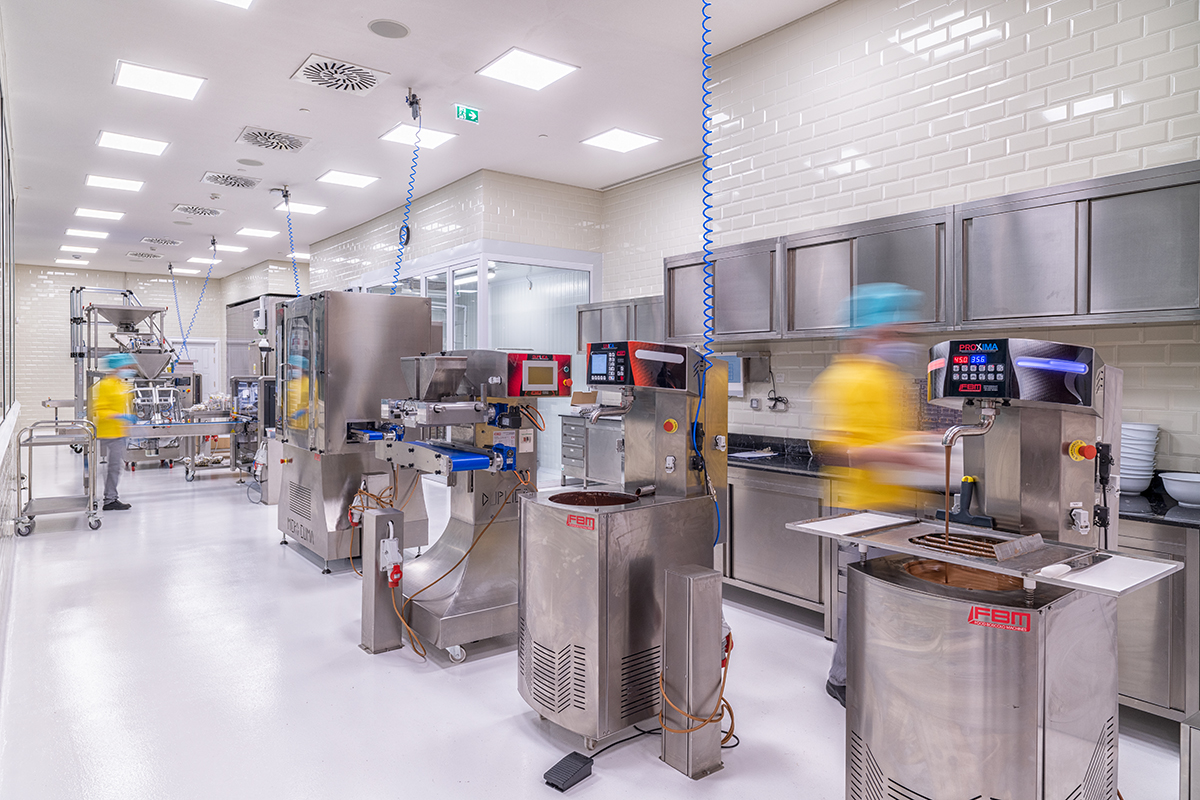
The Chocolate Story Museum
LUX: What is a sustainable vineyard model and how are you working to secure the future of viticulture?
AB: We are committed to protecting the environment and the future of our vineyards and the Douro Valley where our family has produced Port wine for centuries.
Our sustainable model incorporates a number of techniques and strategies which work together to create a balanced, diversified and sustainable vineyard environment. The basis of the model is the construction of narrow terraces each of which supports only one row of vines.
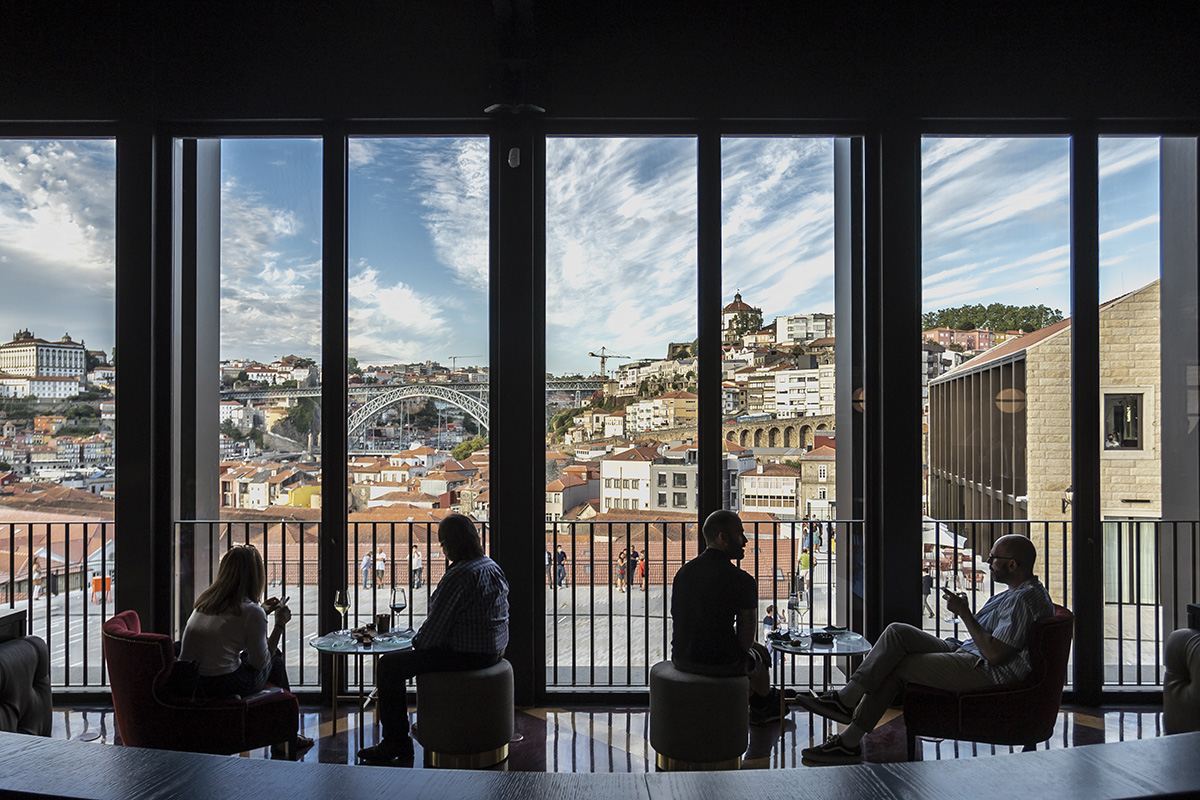
The view from Angel Share’s Wine Bar
This model was awarded the prestigious BES Biodiversity Prize in 2009, which recognises achievement in the fields of conservation and environmental sustainability.
In order to encourage industry change on a global level we established the Porto Protocol – the wine industry’s climate action network. Since our first summit in 2018, we have brought together more than 230 wine and wine adjacent companies from 22 countries to share solutions to combat climate change in the wine industry.
LUX: This year you have opened a new museum with a ground-breaking exhibition from TATE at the Atkinson Museum, what was the strategy behind that?
AB: The vision of WOW is to bring a totally new set of cultural concepts to Porto. The new exhibitions, especially the Atkinson Museum, reinforce this destination as a “must visit” hub for international travellers.
At the centre of WOW is the Atkinson Museum. Originally built in 1760, we have meticulously restored and modernised the space to meet international museum standards and attract exhibitions from the international art pool.

Adrian Bridge has a private collection of 2,000 vessels and glasses which tell the story of the evolution of drinking vessels from earliest civilisations to the present day with some of the collection dates back to 7,000BC
Our most recent exhibition, The Dynamic Eye was produced by the TATE Collection and featured over 100 works from 63 artists – this was the largest number of works travelling from TATE to Portugal. This is an amazing example of the quality of major exhibitions we are bringing to Gaia.
The idea is to bring new and different major international exhibitions, such as The Dynamic Eye, every year.
Read more: Italy Art Focus: Patrizia Sandretto Re Rebaudengo
LUX: How can cultural philanthropy shine a light on the house values?
AB: As a family business, we are built on a set of strong shared values. We are continuously seeking opportunities that align with our core values. At the moment, one of my key priorities is sustainability in the wine industry and coming up with new ways to create new industry practices.
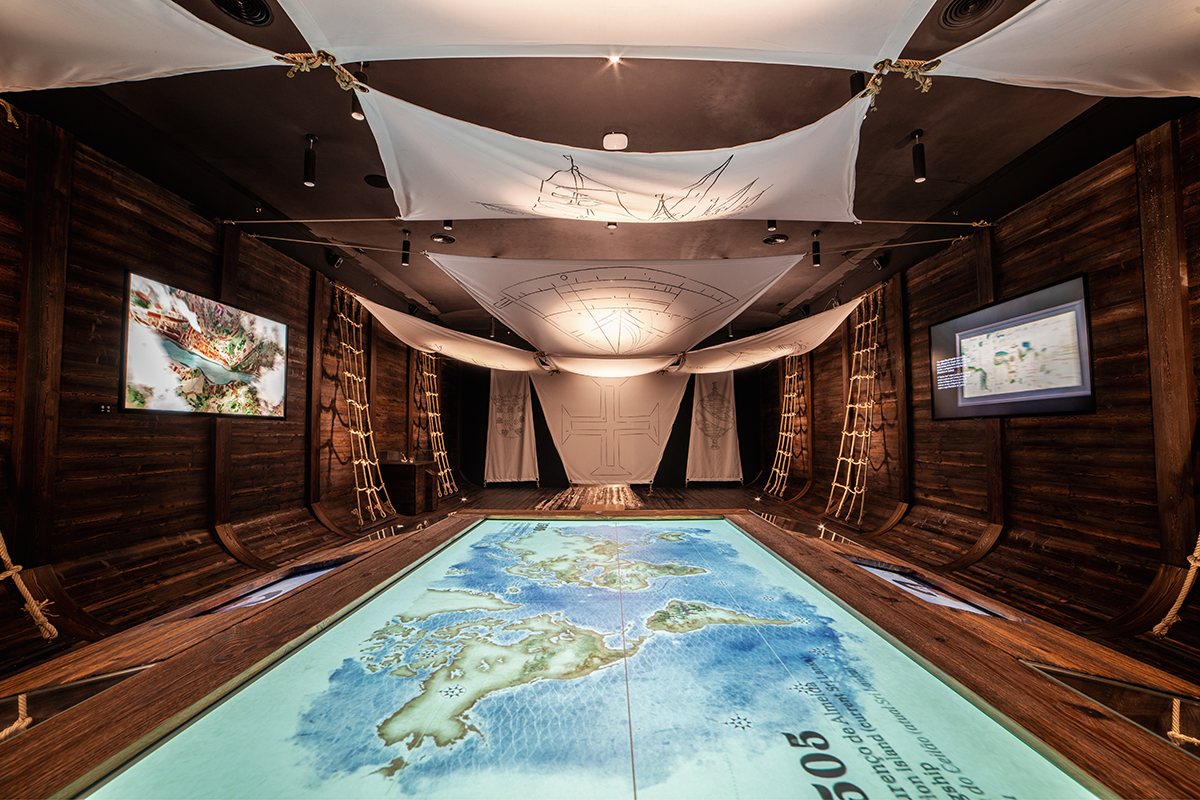
Porto Region Across the Ages Museum
LUX: What would you like to be remembered for?
AB: When I came to live in Porto in 1994, I came to into a Port Wine Trade that was very traditional. Our company helped to consolidate that industry and lead it forward, not least with the innovation of various new styles of Porto. This was an achievement and in doing this I hope that I will be remembered for helping to enhance one of the greatest wines and wine regions in the world. This also includes putting Porto on the map as a destination and through that work we have helped to stimulate the development of the town and create jobs and wealth. However, I will probably just be remembered for altering the city centre through the construction of The Yeatman and WOW.
Find out more: fladgatepartnership.com

